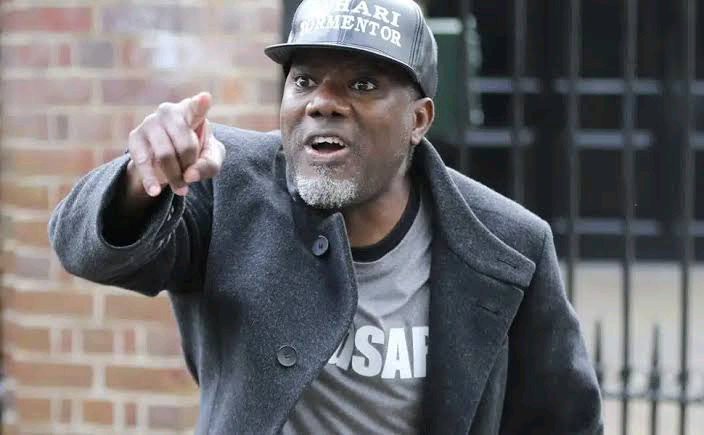Nigeria’s political landscape has been heated with debates and reflections since the 2023 presidential election. Although Bola Ahmed Tinubu’s tenure has faced economic challenges, including inflation and currency devaluation, there are notable figures who still believe Tinubu stands out among his peers. One of these figures is Reno Omokri, a well-known Nigerian author, lawyer, and social commentator.
In a recent tweet on his official X account (formerly Twitter), Omokri made it clear where his loyalty lies for the 2027 election. He stated:
“If there are three names on the ballot in 2027 and they are as follows: Waziri Atiku Abubakar, Bola Ahmed Tinubu, and Peter Gregory Obi…And God spares my life and the lives of the above people, I will vote for and work vehemently for the victory of President Bola Ahmed Tinubu, so help me, God!”
Omokri’s statement is a bold one, considering the array of candidates he would be bypassing, such as Atiku Abubakar and Peter Obi—both heavyweights in Nigerian politics. His loyalty to Tinubu is rooted in what he considers key qualities: loyalty, economic management, dispute resolution, and forgiveness.
For Reno Omokri, loyalty is a key factor in leadership. Tinubu, over the years, has cultivated strong political alliances and stood by many of his political allies. His role in shaping the All Progressives Congress (APC) and nurturing a formidable political structure in Nigeria has been evident. To Omokri, this trait makes him a more dependable leader compared to his counterparts.
While Tinubu’s tenure has been marred by economic turbulence, Omokri seems to appreciate Tinubu’s approach to economic issues, believing he is navigating through tough conditions in a calculated manner. This suggests that Omokri sees beyond immediate challenges, perhaps expecting Tinubu’s policies to yield long-term benefits for the country.
Tinubu’s ability to resolve disputes and bring together warring factions is another quality Omokri finds commendable. In a nation as politically and ethnically diverse as Nigeria, being able to mediate and negotiate between groups is a crucial leadership skill. Tinubu’s time as governor of Lagos and his ongoing efforts at the national level have been marked by an emphasis on unity, and this trait, Omokri suggests, is something that Nigeria still desperately needs.
Omokri highlighted Tinubu’s forgiving nature, an important quality for a leader who needs to keep the country united. The ability to forgive and move on from political rivalries, grievances, and past conflicts positions Tinubu as a leader who may prioritize national unity and reconciliation over personal vendettas.
Despite the current economic hardships under Tinubu’s administration, Omokri’s endorsement shows that some Nigerians still find reasons to support his leadership. Perhaps, for Omokri and others who share his sentiments, the belief is that no other candidate possesses the political will, experience, or temperament needed to steer Nigeria through its challenges.
As the 2027 election approaches, debates about the best candidate to lead Nigeria will intensify. Tinubu, Obi, and Atiku all have loyal supporters, and Omokri’s declaration is a signal that Tinubu’s base remains strong, despite the criticisms.
Whether Nigerians agree with Omokri’s stance or not, one thing is clear: President Tinubu has cultivated a reputation that, for some, outweighs the difficulties his administration currently faces. His ability to maneuver through the complexities of Nigerian politics is seen by people like Omokri as a critical asset, one that will still matter come 2027.
Will this belief be enough to carry Tinubu to another victory? That remains to be seen, but what’s certain is that the battle for 2027 has already begun in the hearts and minds of the Nigerian people.

